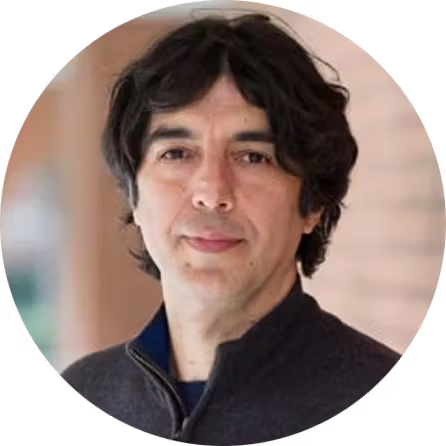Dr. Valter Longo is a professor at the USC Davis School of Gerontology based in California, and the director of the USC Longevity Institute. He’s also the author of the bestseller “The Longevity Diet,” and an internationally recognized expert for his studies on the impact of fasting on healthy longevity. His laboratory focuses on the fundamental mechanism of aging as the basis of all age-related diseases, but also explores dietary interventions that can affect stem cell-based therapies that promote longevity.
In your bestselling book The Longevity Diet, you refer to the goal of staying young and healthy as long as possible. In this context, what is your definition of aging?
Dr. Longo: Well, in the book, I started talking about the necessity to focus much more on the period in which we stay young, what I call juventology. The aging process is just what we define, all the dysfunctions that accumulate that are time-dependent. So let’s say if you have a car, the tires wear out, and you look at the mechanisms of why. That’s interesting but to me, not as interesting as saying, maybe there is a program that once in a while changes the tires. I don’t need to spend a lot of time figuring out why rubber gets worn out, just to replace the tires more often. So that’s the difference between gerontology and juventology. In one case, you try to prevent things from getting older, and in the other case, you mostly try and focus on how we get older and to slow it down.
Your laboratory was the first one to prove that aging can be programmed. How can we initiate a healthy longevity program and where’s the best place to start?
Dr. Longo: The best place to start is to look back at what I call three billion years of research and development and say there are systems out there that are alternative to the main one. For example, if you take a microorganism like the yeast that we use to make bread, you see that it has multiple programs. In one program, it tries to grow very fast, but it dies very quickly. In another, it doesn’t grow anymore, but it lives in the fast lane, everything is very fast, and it lasts about six days. Then, in the third program, in which its metabolism slows down, it can go for about 15/17 days. Then there’s a fourth program, called spore state and it can go on for years. So now that is a 100-fold difference, if not more between program one and program four. So my lab is always focused on thinking you could try to take any organism and do all kinds of things to try to extend life span by slowing down aging or you can try to tap into these preexisting programs and activate them. By combining tradition with technology you can come up with something that can be powerful and safe.
What do you think about a high-protein and high-fat diet?
Dr. Longo: Science focused on longevity is clear, proteins are not so good. You have to have enough, but you don’t want to have an excess. Then you look at clinical studies, there are lots of data suggesting that people who have a high-protein diet can have different types of problems. Not in the short-run, but very high-protein diets can be problematic for the kidneys, etc. So high protein does not look very good in clinical tests. Then you go to epidemiological studies of large populations. What happens to people in the United States or Europe who eat a lot of protein versus those who eat low protein? In the majority of the studies, the people who have a low but sufficient protein diet do better, live longer and have fewer diseases. Then you look at centenarians and take some of the people that live the longest around the world. The great majority of them have a low-protein diet. Proteins tend to activate growth factors, which activate the function of every cell. So for example, if clinical studies have shown that people that have an insufficient protein diet, don’t build muscle and are weak. So the ideal situation is to find things that don’t have lots of short-term problems but provide long-term solutions.

There are lots of data suggesting that people who have a high-protein diet can have different types of problems.
The Fasting Mimicking Diet (FMD) has been very widely recognized and clinically proven to contribute to healthy longevity and minimizing the effect of age-related diseases. How does the FMD impact our healthy longevity and rejuvenation process?
Dr. Longo: The old things tend to have as many good and bad effects, but we always like to focus on the good effects. A good example was calorie restriction. For a long time, everybody talked about how great it was and then we found there were problems with it. Eventually, it turns out that it does about as much good as it does negative. It taught us a lot about aging but it’s fairly neutral. It’s the same with fasting. Lots of people just went out and said, “I’m not going to eat for 10 days.” There will be as many problems as benefits so, for us, the first thing to figure out was is water-only fasting beneficial? But then also to ask what are the problems that water-only fasting causes and how can we get rid of them by developing something different by bringing technology to tradition. The first thing is just about eliminating the compliance issue. Most people can do water-only fasting, which eliminates lots of problems such as hypertension, hypoglycemia, gallstone formation. Then we ended up eliminating the idea of doing this frequently and introduced the idea of what if you just did five days of this fasting, following the diet three times a year? Would that be beneficial? The clinical trial suggests it’s going to be beneficial and these benefits last a long time, but not forever.
Are there any recommendations that you would have for a sustainable longevity diet? How can we best select our personalized diet which would be good for us for life?
Dr. Longo: If you look at what you eat every day, whether you look at Okinawa, Central America, or Southern Europe, you see some very common denominators. The pescatarian, low-protein diet, mostly vegetables, and maybe low mercury fish a couple of times a week seems to be a very good strategy. I found very little evidence against it. I could never find that a diet containing fish was any worse than the vegan diet. In fact, the suggestion was because of nourishment that having the fish will make a big difference to regular people out there, because you would need a dietitian following you and telling you all that you need more of this or that. I think overall the pescatarian, so vegan plus fish a couple times a week, low protein for most of your life, high nourishment, that type of nutrition seems to be ideal.
I spent lots of time going around talking to centenarians. Each little town had their own vegetable that they ate all the time. Why? Because they were probably poor, or they had limited money and that kind of vegetable grew around their area. That’s why they had so much. So I think it’s good to also keep in mind that in the personalization phase, you don’t need to have a molecular biology degree. You can say, “Let me pick from the healthy foods that my grandparents and great grandparents used to eat all the time.” You have to go back to the origin.
In your book, you stress the importance of scientists and medical doctors working together to understand the causes of aging and better serve their patients. How can we encourage this best?
Dr. Longo: We have close to 50 clinical trials ongoing right now with many different universities from around the world. I always just thought it would be nice for doctors if they had somebody that they could turn to and say, “Hey, it’s been a while since I’ve studied this. A patient has this mutation in this particular tumor and is not responding to this treatment. What do you think?” The molecular oncologist could come and say, “You know what? I just read 30 papers and I think if we give him this drug, and this drug together it could work better than if we give him the sort of set,” and lots of times they have decisions that we can make, even in oncology. This is just an example. That’s what we’ve been doing for a long time, with the biologists, neurologists and oncologists – forming a team. Once the doctor understands that we’re not trying to challenge their authority, just trying to help them, then I think they see the power of that team. I think that in a few years, that’s going to be a requirement. We are starting doing that in Los Angeles, we have now opened a clinic, we opened one in Milan, working like this. I hope at some point that this will be a hospital where we are going to have the specialist to set up working in those teams.

